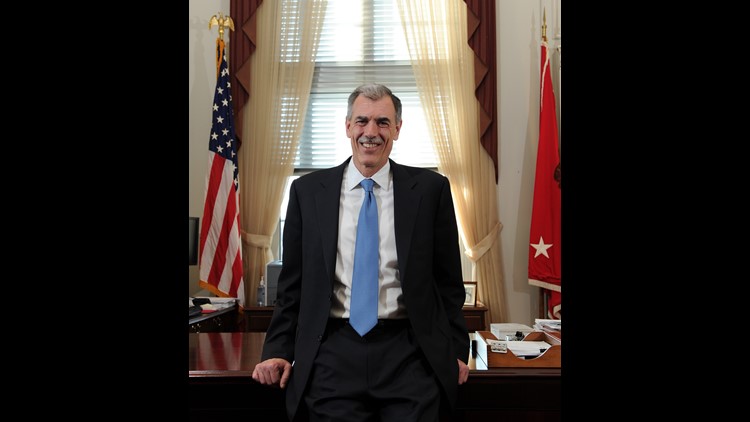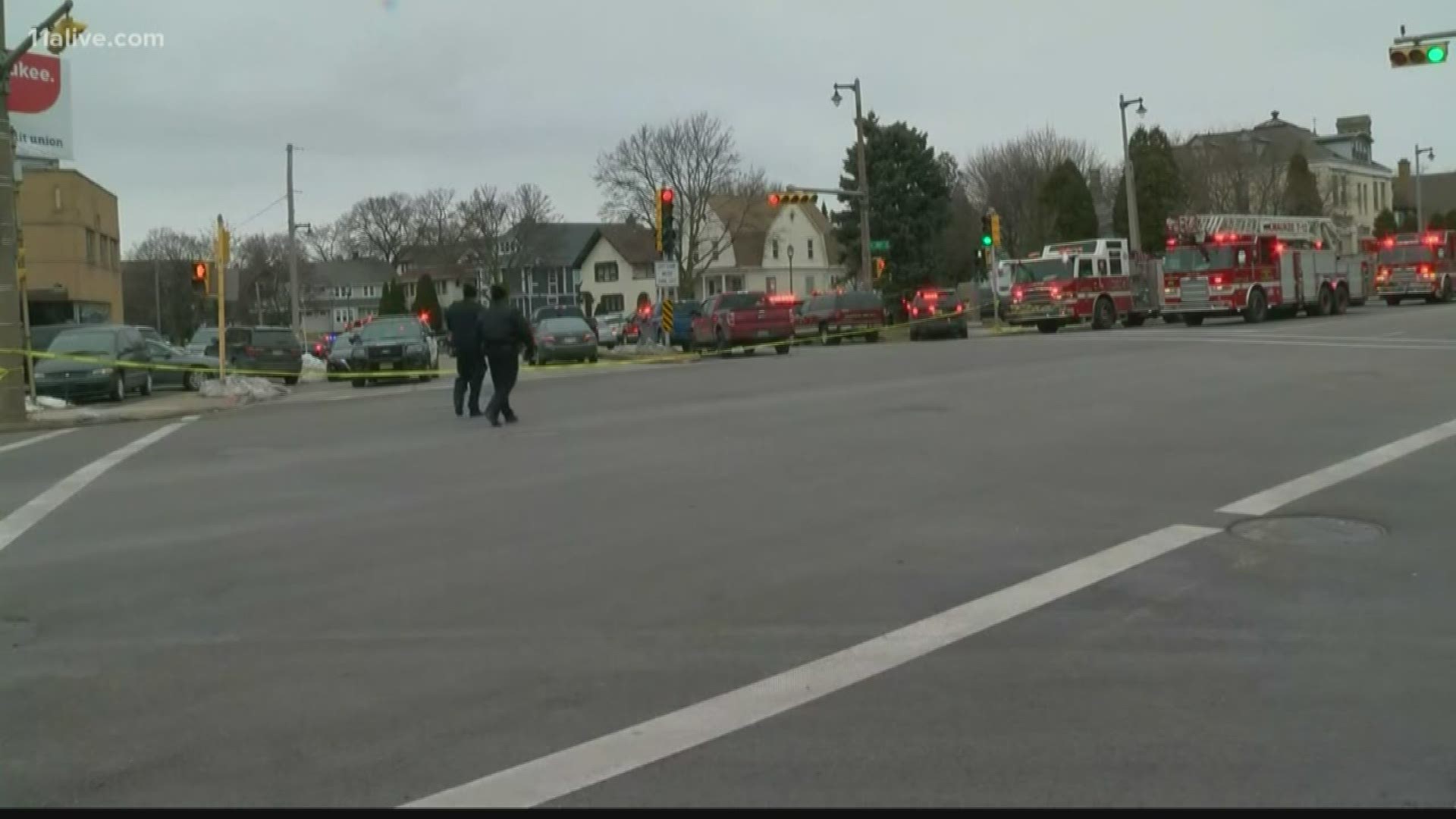WASHINGTON — Donald Verrilli didn't get much on-the-job training before his five-year run as U.S. solicitor general became one for the history books.
He had argued five cases before the Supreme Court as the government's top lawyer when it fell to him to defend what remains President Obama's top domestic policy achievement: the Affordable Care Act, or Obamacare. The extraordinary oral argument ran for more than six hours over three days.
Verrilli won that case, his first significant victory before a right-of-center Supreme Court that became more balanced this year upon the death of Justice Antonin Scalia.
![Solicitor General Donald Verrilli retiring after historic run at Supreme Court [oembed : 85299134] [oembed : 85299134] [oembed : 85299134] [oembed : 85299134] [oembed : 85299134] [oembed : 85299134]](/Portals/_default/Skins/PrestoLegacy/CommonCss/images/smartembed.png)
Here's a look at 20 major cases his office argued -- nearly all of them by Verrilli personally:
2011-12 Term
National Federation of Independent Business v. Sebelius: Won a 5-4 ruling from Chief Justice John Roberts that upheld the Affordable Care Act in the face of attacks from states and businesses.
Arizona v. U.S.: Won a 5-3 ruling that beat back three out of four contested provisions of an Arizona law aimed at stanching the flow of illegal immigrants.
2012-13 Term
Fisher v. University of Texas at Austin: Lost a 7-1 decision that ordered a federal appeals court to scrutinize more closely the university's use of racial preferences in admissions. The case returned to the Supreme Court in 2015.
Shelby County v. Holder: Lost a 5-4 decision striking down a key section of the Voting Rights Act, which had forced mostly Southern states to get federal approval for any changes in voting practices.
Hollingsworth v. Perry: Won a 5-4 ruling that legalized same-sex marriage in California by denying its challengers the right to bring their case to court.
U.S. v. Windsor: Won a 5-4 ruling that struck down a key part of the federal Defense of Marriage Act, giving legally married same-sex couples access to federal recognition and benefits.
![Donald Verrilli top cases [image : 85298750]](http://www.gannett-cdn.com/media/2016/06/02/USATODAY/USATODAY/636004708730787159-AP-Supreme-Court-Health-Care.jpg)
2013-14 Term
McCutcheon v. Federal Election Commission: Lost a 5-4 decision that struck down federal limits on the total amount of money donors can give to all candidates, committees and political parties. Limits on each donation remain.
National Labor Relations Board v. Noel Canning: Lost a mixed 9-0 ruling that acknowledged the president's right to make recess appointments, but not when the Senate is holding pro-forma sessions capable of conducting business.
Utility Air Regulatory Group v. Environmental Protection Agency: Lost a mixed 5-4 ruling that blocked the government from requiring permits for greenhouse gas emissions from new or modified industrial facilities, while allowing the EPA to regulate emissions from existing facilities.
Burwell v. Hobby Lobby Stores: Lost a 5-4 decision that gave closely-held corporations with religious objections an exemption from federal regulations requiring free insurance coverage of contraceptives.
2014-15 Term
Texas Department of Housing and Community Affairs v. The Inclusive Communities Project: Won a 5-4 decision upholding the use of a landmark civil rights law to challenge housing discrimination based on impact, rather than intent.
King v. Burwell: Won a 6-3 ruling upholding the use of tax credits that make health coverage affordable in federal, as well as state, health care exchanges.
Obergefell v. Hodges: Won a 5-4 decision requiring states to license same-sex marriages and to recognize such marriages performed in other states.
Michigan v. Environmental Protection Agency: Lost a 5-4 decision temporarily blocking federal clean air regulations on power plants that were aimed at reducing mercury and other toxins.
2015-16 Term
Friedrichs v. California Teachers Association: The court deadlocked 4-4 on whether public employee unions can, as the Obama administration argued, continue to collect fees from non-members. A federal appeals court ruling keeps that provision in place.
Evenwel v. Abbott: Won an 8-0 ruling that allows states to keep drawing legislative districts based on total population, rather than the number of eligible voters. The case was argued by Verrilli's chief deputy, Ian Gershengorn.
Zubik v. Burwell: In a legal draw, the court returned a series of cases filed by religious, non-profit employers against the Affordable Care Act's contraceptive mandate to federal appeals courts for additional fact-finding.
Cases Awaiting Decisions
Fisher v. University of Texas at Austin: Argued in favor of the university's continued use of racial preferences as one factor in admissions, above and beyond its acceptance of the top students from every high school with rankings.
Whole Woman's Health v. Hellerstedt: Argued that Texas' restrictions on abortion clinics and doctors, which would reduce to 10 the number of licensed clinics in the state, constitute an undue burden on women seeking abortions.
U.S. v. Texas: Argued that the federal government has the authority to offer more than 4 million undocumented immigrants temporary protection from deportation and the opportunity to apply for work authorization.



![Donald Verrilli top cases [image : 85298574]](http://www.gannett-cdn.com/media/2016/06/02/USATODAY/USATODAY/636004707543299935-XXX-Don-Verrilli-hdb3238.JPG)
